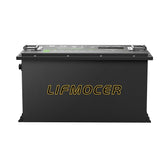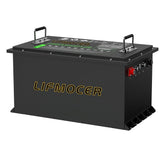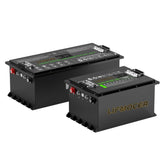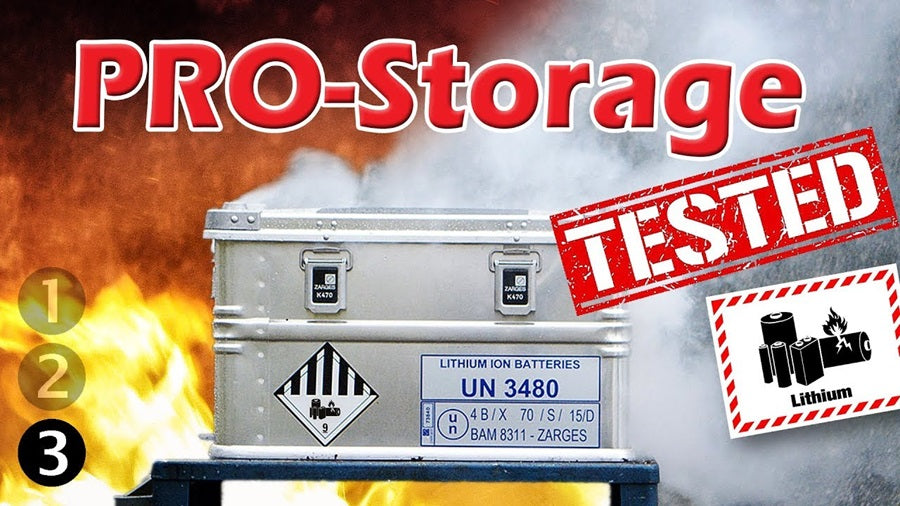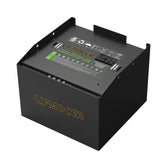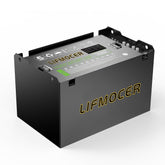Lithium-ion Battery Overheating & Fire? 3 Essential Safety Habits
Lithium battery is at the heart of modern technology, powering everything from smartphones and laptops to forklifts and golf carts. Despite their impressive performance and energy storage capabilities, these batteries are not without their own risks. One of the most concerning is overheating, which can lead to thermal runaway and even fire.
To reduce the risk of fire from overheating lithium-ion batteries, this article will focus on three key safety habits that will not only help keep your battery at peak performance, but also help you prevent overheating and minimize the likelihood of fires, thereby providing you with safety.
1. Monitor Battery Temperature and Avoid Overcharging
Overheating of lithium-ion batteries is one of the main causes of fire. Overheated batteries can lead to dangerous conditions, including thermal runaway. To prevent this dangerous situation from happening, it is crucial to monitor the temperature of lithium batteries regularly.
How to prevent overheating: Make sure that lithium batteries are not exposed to high temperatures and avoid keeping them charged for long periods of time. Overcharging can cause the battery to heat up, so the charger should be disconnected in time after the device is charged. At the same time, when using lithium-ion batteries for high-load applications such as forklift batteries or golf cart batteries, the charger should pay special attention to its compatibility and anti-overcharge function. This not only protects the safety of the battery, but also minimizes the occurrence of fire and ensures safety when using lithium-ion batteries. By taking these precautions, users can effectively prevent overheating and ensure the normal use and safety of the battery.
2. Proper Storage of Lithium Batteries
Proper storage of lithium batteries is an important step to ensure their stable performance and reduce the risk of overheating. To extend the battery life and avoid potential safety hazards, it is recommended to store lithium batteries in a cool and dry environment, away from direct sunlight or near heat sources. Extreme temperatures (whether hot or cold) may accelerate battery aging and increase the possibility of overheating or even fire.
Storage recommendations: When storing lithium-ion batteries, avoid fully charging or completely draining them. Make sure the battery is at about 50% of its capacity. This helps keep the battery in optimal condition and reduces chemical reactions inside the battery, thereby preventing excessive heat accumulation and extending the battery life.
In addition, when storing lithium batteries, make sure they are away from any conductive materials that may cause a short circuit, such as metal objects or humid environments. Storage is especially important for larger capacity lithium-ion batteries used in forklifts or golf carts. They should be placed on a non-flammable surface and the storage area should be well ventilated. This habit can effectively improve the safety and service life of lithium batteries.
3. Regularly Inspect and Maintain Your Batteries
Regular maintenance is one of the best ways to ensure the safe operation of lithium batteries. Check the battery for any signs of damage, such as swelling, leakage, or corrosion, which may indicate a serious problem that could lead to overheating or fire.
Here are some practical maintenance tips: If you are using a lithium forklift battery or a lithium golf cart battery, pay attention to the battery terminals. Make sure the terminals are clean and have no signs of corrosion. Also, carefully check the battery casing to make sure it is intact and that the battery is securely fastened. If the battery is found to have any damage, it must be replaced immediately to effectively avoid potential fire hazards.
In addition to maintaining the lithium battery itself, daily maintenance of the battery charger is also an indispensable part. Make sure the charger is in good working condition and can output the correct voltage. A damaged or incompatible charger will cause the battery to generate excessive heat, which will undoubtedly greatly increase the probability of fire. Therefore, when using lithium batteries, it is important to keep these maintenance points in mind to ensure the safe operation of your equipment.
Conclusion
Lithium-ion batteries are a great technology, but they come with risks that should not be ignored. By following these three essential safety habits—monitoring battery temperature, storing batteries properly, and performing regular maintenance—you can reduce the risk of overheating and prevent battery fires. With the right precautions, you can enjoy the long-lasting performance of your lithium batteries without the worry of dangerous overheating.
FAQ
1. How can I tell if my lithium-ion battery is overheating?
If your lithium-ion battery feels unusually hot to the touch, it's a sign that it may be overheating. Other signs of overheating include swelling, a noticeable decrease in performance, or an unusual odor. If you notice any of these signs, it’s essential to stop using the battery immediately and inspect it for damage.
2. Can lithium-ion batteries catch fire without warning?
Yes, lithium-ion batteries can catch fire without warning, especially if they have been improperly charged, stored, or maintained. It’s crucial to follow proper safety guidelines, such as using compatible chargers and storing the battery at optimal temperatures, to minimize the risk of a fire.
3. Is it safe to leave my lithium-ion battery plugged in overnight?
While modern lithium-ion batteries are designed to stop charging once full, leaving them plugged in for extended periods may still cause heat buildup over time. It’s best practice to unplug your device once the battery is fully charged to prevent unnecessary heat accumulation.


